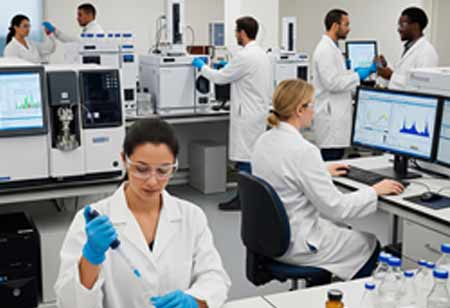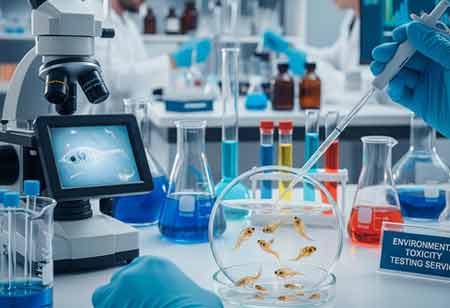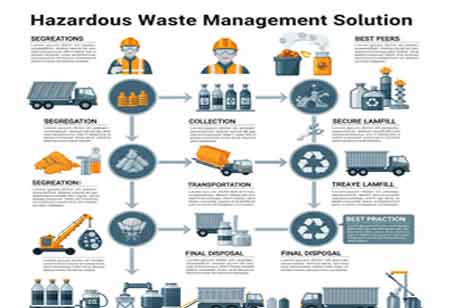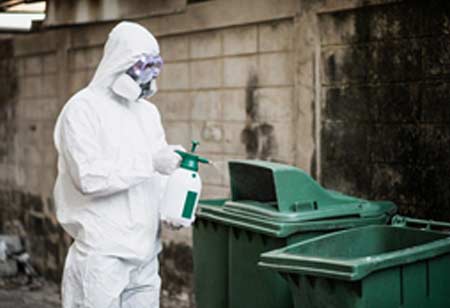Thank you for Subscribing to Environmental Business Review Weekly Brief
Safeguarding Health and Ecosystems with Environmental Toxicity Testing Services
Environmental toxicity testing services protect human health, wildlife, and ecosystems by detecting harmful substances, ensuring compliance, and guiding sustainable practices for safer industrial and ecological decision-making.

By
Environmental Business Review | Wednesday, October 08, 2025
Stay ahead of the industry with exclusive feature stories on the top companies, expert insights and the latest news delivered straight to your inbox. Subscribe today.
Fremont, CA: Environmental toxicity testing services are crucial for identifying and evaluating hazardous chemical, biological, or physical agents that may harm human health, wildlife, and the natural environment. As industries expand and urbanization accelerates, the release of pollutants into the air, water, and soil has become a pressing global concern. Toxicity testing helps determine the potential risks posed by contaminants and ensures that industrial activities meet regulatory standards. From assessing pesticide residues to evaluating industrial wastewater, these services provide critical insights for mitigating environmental damage and promoting sustainable practices.
Ensuring Compliance and Public Safety
One of the primary benefits of environmental toxicity testing services is their ability to ensure compliance with national and international environmental regulations. Governments and regulatory agencies require industries to monitor and control pollutant levels; failure to comply can result in legal penalties, operational shutdowns, and reputational damage. For example, wastewater toxicity testing can confirm whether effluents meet discharge limits before being released into waterways, protecting aquatic life and downstream water users.
Public safety is also a major driver for environmental testing. By detecting harmful substances in soil, drinking water, or air, these services prevent human exposure to toxins that can cause acute or chronic health issues, such as respiratory illnesses, neurological disorders, or cancer. Industries, including manufacturing, agriculture, mining, and energy production, rely on toxicity testing to evaluate environmental risks associated with their operations and to take corrective actions before pollutants reach hazardous levels. This proactive approach safeguards communities, ecosystems, and the company's reputation.
Supporting Sustainable Practices and Risk Management
Environmental toxicity testing services also play a strategic role in promoting sustainability and risk management. Accurate testing results guide industries in adopting cleaner production methods, reducing waste, and choosing safer raw materials. For example, by identifying the toxicity levels of industrial chemicals, companies can explore non-toxic or biodegradable alternatives that minimize environmental impact. Additionally, toxicity testing supports the development of environmental management systems that integrate pollution prevention strategies into everyday operations.
These services are equally valuable in risk assessment and emergency response. In the event of accidental chemical spills, fires, or industrial leaks, toxicity testing provides rapid analysis to inform containment measures and remediation plans. This quick response minimizes long-term damage to ecosystems and reduces cleanup costs. Environmental testing data can be used to educate stakeholders, including employees, local communities, and policymakers, on the importance of ecological responsibility and sustainability.





